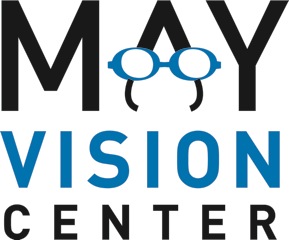When a dairy cow in a large herd is found to have tuberculosis, the effects can be felt throughout the entire community, from the veterinarians who treat it to the entire dairy industry as the whole market is affected.
Keith Paulsen, diagnostic case and outreach coordinator at the UW Veterinary Diagnostic Laboratory, spoke about keeping dairy herds free of TB at the Sept. 5 Waunakee Rotary meeting.
A year ago, a cow from the Meier Farm just north of Waunakee in the Town of Vienna was found to have TB when it was slaughtered. That led to a control program on the four-generation farm with its herd of 1,100 cows.
The Veterinary Diagnostic Lab is a state agency with 130 employed. Another lab near Rice Lake handles a smaller percentage of caseloads, all poultry, Keith said, noting that one in five people in northwest Wisconsin work in poultry.
Statewide, the caseload is 90 percent bovine, working with cattle and bovine genetics for export.
“The best genetics in the world are in Wisconsin,” Keith said.
Keith noted that the Meier farm is very well managed with a number of employees. One of the immigrant farm workers had human tuberculosis, which can be contagious to cows. In Wisconsin, 60 to 90 percent of workers on farms are migrants, he said.
The herd is now in a disease control program, so the animals are tested multiple times and watched.
Affected cows could have been a disaster for the family farm. While indemnity programs exist, the federal program offers only two-thirds of the fair market value for the herd, which is worth far more. The farmers had invested in the best genetics.
Because the workers are migrant, they may be reluctant to seek medical treatment when such occasions arise. But Keith noted that HIPPA laws protect the privacy of patients.
“This is not an immigrant issue because of HIPPA,” Keith said.
The worker on the Meier farm was treated, is now disease free, and working on a farm.
Preventing the spread of bovine TB and other diseases has become more complicated as the size of herds grow along with their mobility. Calves born in late summer are often sent to states like Kansas and Texas with warmer climates to overwinter.
“This isn’t just about people moving around the world but calves, too,” Keith said.
Badger Partners in Health Safety, comprising a number of state agencies, is helping to provide TB screenings and wellness services, he said. It has tested five herds locally along with the workers.
Keith pointed out that the dairy industry contributes $44 billion to the economy, and every issue that discourages dairy consumption affects it.
As for the Meier farm, the herd is still under quarantine and will continue to be for the next five to six years. In order for any of the animals to leave, they will have to have a special certificate.
Keith pointed out that because all milk is pasteurized, bovine TB is not transmittable through consuming it.
Keith Paulsen, diagnostic case and outreach coordinator at the UW Veterinary Diagnostic Laboratory, spoke about keeping dairy herds free of TB at the Sept. 5 Waunakee Rotary meeting.
A year ago, a cow from the Meier Farm just north of Waunakee in the Town of Vienna was found to have TB when it was slaughtered. That led to a control program on the four-generation farm with its herd of 1,100 cows.
The Veterinary Diagnostic Lab is a state agency with 130 employed. Another lab near Rice Lake handles a smaller percentage of caseloads, all poultry, Keith said, noting that one in five people in northwest Wisconsin work in poultry.
Statewide, the caseload is 90 percent bovine, working with cattle and bovine genetics for export.
“The best genetics in the world are in Wisconsin,” Keith said.
Keith noted that the Meier farm is very well managed with a number of employees. One of the immigrant farm workers had human tuberculosis, which can be contagious to cows. In Wisconsin, 60 to 90 percent of workers on farms are migrants, he said.
The herd is now in a disease control program, so the animals are tested multiple times and watched.
Affected cows could have been a disaster for the family farm. While indemnity programs exist, the federal program offers only two-thirds of the fair market value for the herd, which is worth far more. The farmers had invested in the best genetics.
Because the workers are migrant, they may be reluctant to seek medical treatment when such occasions arise. But Keith noted that HIPPA laws protect the privacy of patients.
“This is not an immigrant issue because of HIPPA,” Keith said.
The worker on the Meier farm was treated, is now disease free, and working on a farm.
Preventing the spread of bovine TB and other diseases has become more complicated as the size of herds grow along with their mobility. Calves born in late summer are often sent to states like Kansas and Texas with warmer climates to overwinter.
“This isn’t just about people moving around the world but calves, too,” Keith said.
Badger Partners in Health Safety, comprising a number of state agencies, is helping to provide TB screenings and wellness services, he said. It has tested five herds locally along with the workers.
Keith pointed out that the dairy industry contributes $44 billion to the economy, and every issue that discourages dairy consumption affects it.
As for the Meier farm, the herd is still under quarantine and will continue to be for the next five to six years. In order for any of the animals to leave, they will have to have a special certificate.
Keith pointed out that because all milk is pasteurized, bovine TB is not transmittable through consuming it.
******
Other News:
-Bob Klostermann is planning a tour of the former Badger Ordinance plant for Oct. 10. It’s also the week of the Rotary Friendship exchange, so we may have some visitors along.
-Jean Elvekrog passed around a sign-up sheet for those interested in the Reading Pals Program at Heritage Elementary School. If you are interested in reading with a student, talk to Jean.
-Bob Klostermann is planning a tour of the former Badger Ordinance plant for Oct. 10. It’s also the week of the Rotary Friendship exchange, so we may have some visitors along.
-Jean Elvekrog passed around a sign-up sheet for those interested in the Reading Pals Program at Heritage Elementary School. If you are interested in reading with a student, talk to Jean.
******
Guests: Barbara Townley, Scott Paulsen, Gretchen Paulsen, guests of Jon Townley; Jenn Hurley, guest of Dave May.
Visiting Rotarians: None
Birthdays: Sept. 12, Robert Sachtjen; Sept. 14, Fritz Durst; Sept. 17, Dan Miller.
Anniversaries: Sept. 14, Dan and Kimberly Evans; Sept. 15, Rich and Donna Murphy; Sept. 17, Ken and Mary Pesik.
Birthdays: Sept. 12, Robert Sachtjen; Sept. 14, Fritz Durst; Sept. 17, Dan Miller.
Anniversaries: Sept. 14, Dan and Kimberly Evans; Sept. 15, Rich and Donna Murphy; Sept. 17, Ken and Mary Pesik.
Programs: Sept. 12, Club Assembly and WNC presentation by Lisa Humenik; Sept. 19, Cameron Swallo, the Better Angel Organizations; Sept. 26, Mark Weller, the art of time stacking.
Greeters: Sept. 12, Connie Blau and Kathy Cefalu; Sept. 19, Scott Cochems and John Cullen; Sept. 26, David Dargenio and Allan Dassow.








